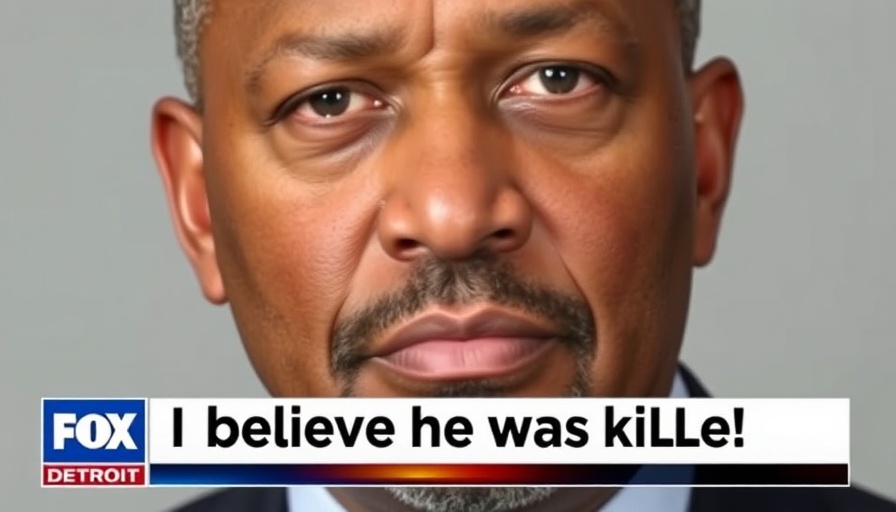
The Ripple Effects of Tariffs on the Michigan Economy
The complex relationship between tariffs and inflation is a hot topic that sits at the intersection of the economy and politics. During a recent episode of The Pulse, we gained insights into how these tariffs are shaping everyday life in Michigan. As President Trump continues to negotiate trade policies, it becomes essential for residents in Metro Detroit and across Michigan to understand what tariffs mean for their wallets and the overall economy.
In Trump tariff impacts on inflation and the economy, the discussion dives into the economic implications of tariffs, prompting us to analyze their real effects on Michigan residents.
Tariffs: Understanding the Basics
At their core, tariffs are taxes levied on imported goods. The intention is often to make foreign products more expensive relative to domestic goods, thereby encouraging consumers to buy American-made products. However, while the intent may seem beneficial, the reality is that these tariffs often lead to higher prices for consumers. As reported by experts, the real impact of these tariffs on inflation remains a subject of significant debate.
How Tariffs Are Affecting You
Economics professor Michael Greiner explained that while tariffs are designed to protect domestic industries, they often result in increased costs for consumers. For example, Michigan residents may have noticed rising prices on everyday items like furniture and electronics. Experts assert that these costs tend to hit lower and middle-income families the hardest, as they represent a larger percentage of their total income. When the price of goods increases due to tariffs, it can strain household budgets significantly.
The Long-Term Implications of Trade Policy
The uncertainty surrounding tariffs also affects business decisions. Greiner noted that many businesses are hesitant to invest in future projects due to the unpredictability of federal trade policies. If companies cannot forecast future costs accurately, investment in expansion or new technology may be postponed, potentially stunting economic growth. This could have long-term implications for job creation and wages, especially in sectors heavily reliant on imported materials.
A Balancing Act: Winners and Losers
The landscape created by tariffs often results in a scenario where there are both winners and losers. For example, Floridian tomato growers might rejoice at the increased prices due to tariffs on competing foreign products, but Michigan shoppers face higher costs at the grocery store. This dichotomy highlights the need for a nuanced discussion about tariffs—a consideration that goes beyond simple ideological divides of Democrat vs. Republican.
Future Predictions and Economic Stability
Looking ahead, the effects of current tariffs may not be fully felt until 2025. As Professor Greiner pointed out, anticipation of price hikes may have prompted businesses to stockpile inventory ahead of tariffs taking effect. In this case, consumers may not see immediate cost increases, but the long-term effects could lead to significant economic challenges. As our political landscape continues to shift, Michiganders need to remain informed about how such policies can influence their daily lives.
The Role of Public Policy in Shaping Economic Futures
Federal decisions around tariffs have implications that reach far beyond the ledger books. Cuts to funding for essential services, like public broadcasting or disaster preparedness programs, which are currently under threat, add another layer of complexity to the mix. Public resources not only provide critical information but also ensure that underserved communities receive the assistance they need during emergencies.
Community Voices: The Need for Civic Engagement
As residents of Michigan grapple with these economic shifts, engaging with local representatives is crucial. Issues like budget cuts to the Corporation for Public Broadcasting highlight the importance of civic engagement. Community members are encouraged to participate in local governance discussions to voice their concerns and prioritize policies that will sustainably benefit their neighborhoods.
Moving Forward: Actionable Steps for Residents
With all the challenges posed by current economic policies, it is crucial for Michigan residents to stay informed and proactive. Advocating for policies that balance economic growth with consumer protection is essential in ensuring that future economic strategies do not disproportionately harm the working and middle-class families who make up Metro Detroit. Residents can visit Protect My Public Media to learn how to contact their local representatives and express their views on these pivotal issues.
In summary, the intricate balance of tariffs, inflation, and public policy shapes the economic landscape. By staying informed and engaged, Michiganders have the opportunity to advocate for policies that promote fairness and address the economic challenges facing their communities.
 Add Row
Add Row  Add
Add 



Write A Comment